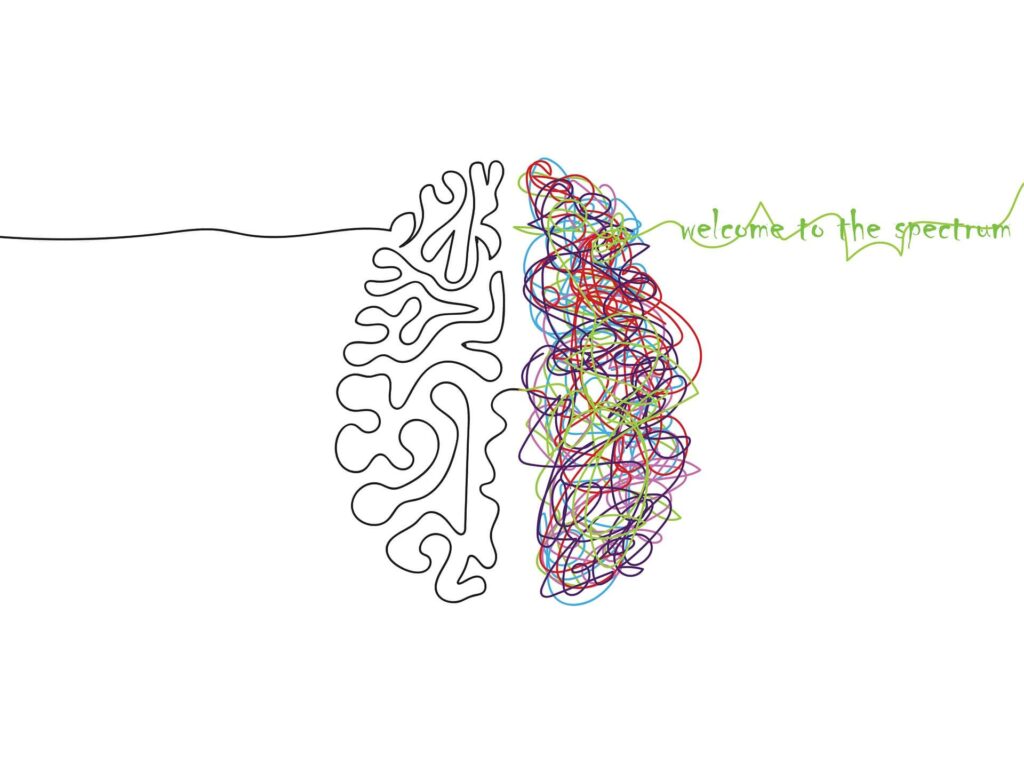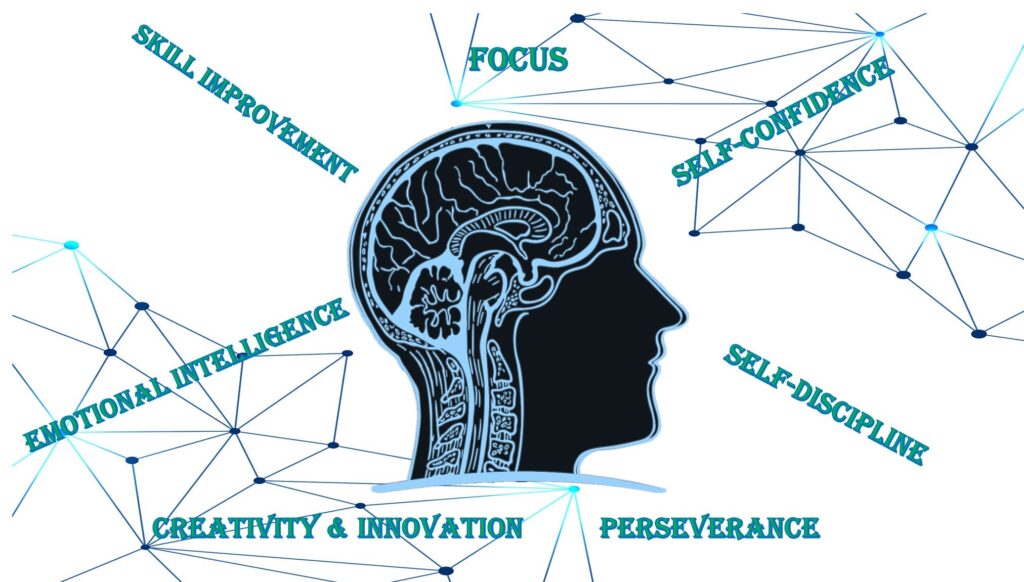How to Help Your Child Overcome the Challenges of Autism


By Robert G. Jesky, PhD | Jun 24, 2022 | Strategies |
Autism spectrum disorder (ASD) is a complex condition that can cause your child to struggle with day-to-day activities, such as social interactions and staying organized. Depending on the severity of your child’s ASD, these challenges may seem like they’ll never end. Fortunately, you can help your child overcome various struggles associated with autism. By investing in education, providing structured daily activities, and offering positive reinforcement, you can significantly improve your child’s overall quality of life. Autism can be a tough condition to live with, but it doesn’t have to be a limiting one.
By staying positive, remaining patient, and persevering, your family can overcome autism and lead a fulfilling life together. Stay informed about ASD, as well as other developmental issues affecting your child or relative, by consulting online resources and reading up on the latest research. Keep in mind that every child develops differently and has his or her own unique needs. As a parent of relative of a child afflicted with autism it is important for you to understand how your child learns best and what helps him or her feel most comfortable. Try to understand how your child feels about certain situations, learn to compromise, and work on setting daily goals together.
In this article, I will share some simple strategies you can use to help ease the difficulties your child experiences with ASD. From understanding the basics of ASD and its effects on the brain’s sensory system to establishing daily routines, learning together, and cultivating connection you will find helpful information about each of these topics and more. After reading through this guide, you might even discover that some of the challenges aren’t so difficult to live with after all!
Understanding the Basics of ASD
The first step towards helping your child overcome the struggles of autism is understanding the basics of ASD. Educate yourself about your child’s condition and learn as much as you can about ASD. By doing this, you can better support your child and ensure they have the resources they need to succeed during this difficult time. Additionally, you can prevent your child from getting frustrated or discouraged by the challenges they face. While it’s important to be knowledgeable about ASD, it’s even more essential to be patient. You may find your child isn’t ready to take on new skills just yet. Be understanding, and be willing to wait until they’re ready to try new things. You can also take advantage of therapies, such as occupational or play therapy, to help your child practice new skills. The most important thing to understand about ASD is that it’s a lifelong condition that can affect different people in different ways. In addition to learning how to help your child overcome the parts of ASD that are difficult for him, you can also learn how to best support your child through different phases of the condition.
Before you can begin to help your child overcome the struggles of ASD, you first need to understand what those struggles are. Just as you have found this online resource, you may also consider talking to other parents or caretakers who have children and/or work with children with ASD. Such individuals may be found in our community forum, and from there you may be able to create a support group that is just right for you.
Understanding How Your Child’s Mind Works
Different people experience ASD in different ways, and there is no single way to have autism. This means that the ways in which you and your child experience ASD may be different, as well. The best way to better understand your child is to begin by getting a better understanding of how his mind works. Autistic people experience a number of cognitive and social challenges, such as sensory processing issues, language delays and social issues. Understanding these issues can help you better support your child and understand his needs and limitations.
Autistic children have different sensory needs than neurotypical children. For example, they may react negatively to bright lights, loud noises, or touch than their neurotypical peers might react to. You can help your child handle these situations by limiting his exposure to them. If sensory issues make it uncomfortable for your child to be touched, try holding him or giving him a hug from behind. If s/he doesn’t like bright lights, dim them down or move them away from such a stimulus. You can also provide sensory input to help your child feel more at ease. For example, if your child doesn’t like loud noises, try holding a conversation with him or her at a lower volume.
Sensory processing issues are common among people with ASD. This means that your child may experience a range of issues with their senses, such as being over- or under-sensitive to certain sounds, smells, or touch. The most ideal way to deal with these is to take note of which sensory stimuli are soothing and which are aggravating and then work towards removing those they are especially sensitive towards. It is worth noting that ASD is simply a difference in the way your child thinks, and increasing your understanding of how they think will create a broader connection and an opportunity to learn together.
Teach Your Child Basic Skills
One of the best ways to help your child overcome the struggles of ASD is to teach them the basics. This will be a challenging task, but with a little patience, your child can learn and expand their life skills. Depending on their age, your child may be able to count up to 10, but s/he may not understand the reasoning behind the numbers. By teaching your child the basics and showing them the reasoning behind their use and application, you can help them become more independent. Basic skills include, but are not limited to:
- Understanding numbers and counting – Learning basic math, such as addition and subtraction, can greatly improve your child’s organization and reduce stress. This will also help him/her feel more in control of their life.
- Understanding the alphabet – Many people with ASD struggle to understand the alphabet, which can make writing and reading difficult. Teaching your child to read and write can improve their quality of life and give them a sense of independence.
- Understanding shapes and colours – Understanding shapes and colours can help your child understand basic concepts, such as how to draw a dog or understand what a colour means. It can also allow for more creative activities.
- Understanding daily tasks and routines – Understanding everyday tasks, such as brushing teeth or taking medication, can improve your child’s quality of life too by giving them more independence. These basic tasks will also help build your child’s confidence.
Build Trust Between You and Your Child
ASD is a lifelong condition, which means that your child is likely to face challenges that are difficult to overcome. However, trust is the foundation of a loving relationship, and it can help you build a deeper connection with your child. Trust can be built by listening to your child and showing him/her that you care by focusing on their needs. Trust can also be built by positive reinforcement and consequences. Positive reinforcement rewards your child when they do something well, while consequences help your child learn the importance of rules and boundaries. When you build trust between you and your child, you can help them feel more confident and independent. This can help your child feel more connected to the world and less scared about the future. Trust between you and your child can be built in numerous ways. Here are a few useful methods:
- Talking with your child – Autistic children may have difficulty processing verbal communication, so it’s important to talk with your child regularly about various topics. This can help him/her feel accepted, more understood and connected to the world.
- Spending time with your child – Spending time with your child can help build trust between you and your child. This can also help you learn more about your child’s needs and interests.
- Creating together – One of the best ways to help your child is by creating arts and crafts with him or her. Whether you’re writing a story together, building a Lego set, or baking cookies together, creating can be a great way to teach your child some important skills.
- Reading books – Reading books with your child can help you build trust and help your child learn new things.
- Doing puzzles – Puzzles are a fantastic way to engage your child and help them learn skills like planning and problem solving, and can be lots of fun for you both.
- Watching shows – Watching shows with your child can deepen your connection and help you build trust. Better yet, research indicates TV and movie-viewing can boost literacy skills, aid development of emotional intelligence, and enhance empathy.
- Creating daily rituals – Creating daily rituals, such as brushing teeth, bathing, feeding the pets, or simple exercises can all help build friendship, trust, and give your child a sense of routine. Consistency and predictability encourage good behavior.
- Providing emotional support – Listening to their concerns, offering comfort, giving reassurances, and of course praising the wonderful things they have done are essential. In providing such forms of emotional support for your child you can build trust and create a loving bond between you.
Cultivate Everyday Connections
Regular activities, such as taking a walk, reading a book, doing a puzzle, or playing a game together can help your child make deep, meaningful connections with others and the world around them. Activities that involve creativity, such as arts and crafts, playing music, dancing, painting, or drawing, can help your child release stress and feel more relaxed. By going through the different stages of emotions and learning how to cope with and regulate them, your child can become more self-assured and skilled at handling emotions. Daily activities will allow your child to build valuable social skills and help your child feel more confident and connected to the world. A variety of daily activities that can help cultivate connections include:
- Going for a walk – Walking, doing chores, hiking, or exploring the neighbourhood can help your child build confidence, explore new areas to excite curiosity, and strengthen spatial memory.
- Reading books – Reading books, such as fiction or non-fiction, can help your child explore new ideas and make deep connections.
- Participating in a hobby – Developing a hobby, such as doing puzzles, painting or drawing are fantastic ways to engage your child. Such activities can help them learn skills like planning and problem solving and provide emotional coping strategies.
- Playing games together – This is the perfect way to help your child to think and plan. Many children with autism struggle with these skills, so this is a great way to help them learn.
- Making up stories together – Many children with autism will produce stories of their own. If you want to foster this, put your child in charge of creating a story and setting the stage for it.
- Planning outdoor activities together – One way to help your child understand interpersonal relationships better is through doing things together that mimic common social interactions.
Find Out What Your Child Is Interested In
Children who have autism are often highly focused on a specific topic. If your child is interested in autism, then it would be an excellent idea to find books that will help them learn more about the topic they’re so interested in. You can take this a step further and ask them how they feel about a topic to find out what their feelings are on that particular topic. This is one way to find out if there is anything that you want to explore further with them. There may be other topics they’re interested in that would be of interest to you as well. One way to expand your knowledge of autism and intention understanding is by reading books together with your child. Read more about autism, or read books that teach children with autism how to cope with different emotions, among many others. A couple of fantastic books worth suggesting are “The Curious Incident of the Dog in the Night-time” by Mark Haddon, and “An Abbreviated Life: An Autistic Boy’s Memoirs” by John Elder Robison.
Many people with ASD show strong interests in topics, even if they don’t show an interest in other areas. You can help your child discover his/her interests by taking part in family outings and activities, reading books, or taking part in social events. You can also ask your child what interests him/her, such as what s/he would like to do, where s/he would like to go, or what s/he would like to eat. You can help your child more easily discover their interests by doing the following things:
- Encourage your child to explore their interests – By encouraging your child to explore his or her interests, you can help them discover and develop new passions.
- Take part in community activities – By taking part in community activities, your child can begin to learn the norms of social interaction, make new friends, learn new skills, and foster new interests.
- Attend events – Attending events and workshops, such as STEM events, book fairs, summer camps, and adventure outings can help your child develop new skills, find something they are passionate about and make meaningful connections with peers.
- Take your child on outings – Taking your child on outings can help him learn new things, experience the world from a different perspective, improve mood and eliminate stress, interact with playmates to nurture independence and self-esteem, and develop new, real-world skills. Not to mention, outings will build lasting childhood memories and strengthen your bond.
Plan Special Activities and Celebrations
Autistic children are known to have a hard time making and keeping friends, which is often because they have a very hard time understanding social cues. By taking part in activities that help your child make friends, your child will have a much easier time understanding social cues and therefore making and keeping friends. Likewise, they often have strong interests in certain topics and often have an immense amount of knowledge in these topics. You can help your child make the most of these interests by taking part in activities that help your child make new friends, such as attending social events, taking part in camps, visiting exhibits, or joining groups. In addition, you can help your child celebrate his interests by doing these things:
- Attend social events – Attending events, such as concerts or festivals, can help your child make new friends and widen their social circle.
- Camp – Camp can help your child make new friends, learn new skills, and advance their social skills.
- Visiting exhibits – Visiting an upcoming or current exhibit like a dinosaur or shark exhibit, for instance, will offer precious time for interaction with like-minded kids, enhance their curiosity, and illustrate care in their interests.
- Joining groups – Joining a group or club based on your child’s interests will place them in direct interaction with other kids who share his/her interests, which will help them develop higher self-esteem, promote greater academic success, and advance social skills such as self-management, cooperation, and emotional confidence.
Conclusion
Autism is a complicated condition that can affect your child’s daily activities, such as socializing, communicating, and managing everyday tasks. Understanding how ASD affects your child and building trust with your child are the keys to helping your child overcome ASD. Keep daily schedules. This will help your child know what to expect and what to keep track of. It is also important to structure your child’s day with routines and activities. This will help your child feel less overwhelmed and have a more consistent routine. Find out what your child’s interests are. If your child is obsessed with something, don’t push him/her to do anything else. Encourage your child to follow his/her interests and don’t stress about him/her doing things that don’t interest him/her. Endeavour to find something that your child enjoys and works on that. Offer praise and encouragement for your child’s efforts. It is also important to keep communication open between you and your child. This will help your child feel understood and appreciated. Offer special celebrations and activities for your child.
Kids with ASD often do not get much positive feedback from their surroundings. This may lead to feelings of inadequacy and low self-esteem. Offer your child special celebrations and plan activities to boost his/her self-esteem, and widen their social circle. As your child learns how to better communicate and cope with the world around through persistent playing, learning, and sharing in emotionally and intellectually rich activities you will create a strong bond and build trust, which will allow your child to better manage his/her condition and enjoy a better quality of life. By following simple strategies such as those presented here, your child will feel more confident, included, and safe, and your place as parent or loving confidant will be equally enriched.

Robert G. Jesky, MMed., PhD
Robert is a neuroscientist, lecturer, science educator, athlete, and musician, who has dedicated his life to studying the intersection between brain function, nutrition, and health and wellness. He is committed to equipping others with vital information about health promotion and disease prevention.
Robert is keen to bridge the gap between the scientific community and the public at large by sharing cutting-edge brain health and evidence-based science that helps broaden people’s understanding of how their brains work and what they can do to maximize their potential.






Responses